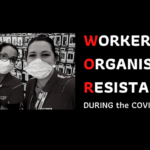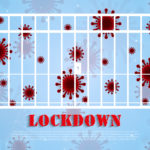The Offence of Failing to School Your Child

Many New South Wales residents have been critical of the state government’s decision to keep schools open during COVID-19, believing the risk of infection outweighs the benefits of formal schooling.
But when may it be illegal not to send your child? And what are the obligations of parents when it comes to home-schooling?
New South Wales plan ‘lacks clarity’
As the official New South Wales school holidays near their end, Premier Gladys Berejiklian has outlined the government’s plan for a staggered return for students from May 11. Towards the end of last term schools remained open with parents encouraged to keep children at home if possible. Parents embraced home-learning and most were assuming that the status quo would continue into term two, especially considering all other lockdown and social distancing measures remain in place.
But in recent days the NSW Premier unveiled a plan for students to return to school on May 11, just one day per week. Attendances will be planned by individual schools themselves and at this stage it’s not clear whether parents will be ‘allocated’ a day, or whether they will be able to choose. Lunch Breaks will also be staggered, as will pick up and drop offs and parents have been told to stay off from school grounds.
Individual schools will ‘work it out’
Much of the information presented so far has been pretty high level – the government’s message inferred that the details are up to individual schools to work out.
Right now, aside from wondering how this ‘staged return’ will actually be practically implemented, many parents have a legitimate concern that it’s possibly ‘too soon’ particularly, with the virus still active in the community.
Even with limited numbers of students allowed in classrooms and playgrounds, social distancing measures will be difficult to enforce, putting the health of children, teachers and school administration staff at risk.
Implications for the health of students and teachers
We already understand that it is possible for someone to actually be a host to the virus – and be contagious – without showing any actual symptoms.
Victorian Premier Daniel Andrews has flatly refused to make sending children back to school mandatory, believing that doing so could create a surge in coronavirus cases at the same time as the annual ‘flu season hits its peak.
Tasmania and the ACT are also making plans for children to continue learning from home with schools open only for those who need them. In the ACT not all schools will remain open – only a select number of sites will be operational.
This seems like a sensible approach right now, considering we’re just beginning to make strides on stopping the spread of coronavirus. Any parent will tell you that schools are breeding grounds for all sorts of maladies from head lice to chicken pox and the ordinary common cold.
There are also community calls for only year 11 and 12 students to return – they are the most adversely affected because their studies are critical for receiving the ‘ATAR’ – a national score which is required for entry into undergraduate courses in universities across Australia.
Right now, as far as education goes, there are different policies in place across each jurisdiction.
NSW
School reopens for everyone on May 11. There has been no clear directive regarding sending children to school, but needless to say sick kids should be kept at home.
Victoria
Schools are open for those who need them but the majority of students will continue learning from home.
Queensland
Schools are open for essential workers, with the bulk of students encouraged to attend from home. The Government will re-evaluate around 15 May.
South Australia
Schools remain open. Parents can choose to keep their children at home.
Western Australia
Schools will reopen in term two, with parents able to make a choice about their child’s attendance.
Tasmania
Children will continue to learn from home, unless they need to attend school.
Northern Territory
Schools are open and children are expected to attend.
ACT
ACT public schools will move to remote learning in term two with most students expected to learn this way, unless they need to attend. For those children who do, e government will provide supervision at a reduced number of school sites.
Is it illegal to keep my child home from school?
In Australia, Parents are legally obliged to ensure their child attends school – or to undertake other educational options such as homeschooling – every school day of the formal school year, unless the parent has a ‘reasonable excuse’ for not doing so.
When it comes to homeschooling, the New South Wales Department of Education requires parents to ensure they are:
- establishing routines and expectations
- setting aside a space for your child to work in
- monitoring communications from your child’s teachers
- beginning and ending each day by asking about your child’s learning
- taking an active role in helping your children with their learning
- encouraging physical activity and/or exercise
- remembering that your child might be stressed or worried during this time
- monitoring how much time your child is spending online
- keeping your children social, but setting rules around their social media interactions.
The Department of education requires students to ensure they are:
- working in the safe, comfortable, quiet space in their home that has been set aside for them
- regularly monitoring digital platforms and communication to check for announcements and feedback from teachers
- completing tasks honestly and doing their best work
- doing their best to meet timelines, commitments, and due dates
- communicating with their teachers if they cannot meet deadlines or require additional support
- collaborating and supporting classmates in their learning
- complying with the department’s Student use of digital devices and online services policy
- communicating with school staff as different needs arise.
Schools are required to assist students and parents to access resources. If students don’t have
have access to computer facilities or the internet, parents/carers need to make arrangements with the school for other learning tools.
While students are at home teachers will aim to provide support via email, online chat facilities in learning platforms, video conferencing facilities or phone call. Policies are in place to support this.
Penalties
Because education is governed by the States and Territories, fines vary across jurisdictions. In Queensland the maximum a court could impose is $800. In New South Wales, it is $2,750 and these fines are normally reserved for persistent non-attendance.
However, many states either suggest or require warnings, notices, meetings or conferences before a case can be recommended for prosecution.
The current direction of the New South Wales government is that healthy children should to go to school. If, as a parent or guardian, you choose to go against this directive, you are technically breaking the law. However, it is very unlikely that the school or the education department would pursue the matter in court. Most New South Wales schools have proven that they are able to support remote-learning to help children keep up with the curriculum and are likely to continue this support.







